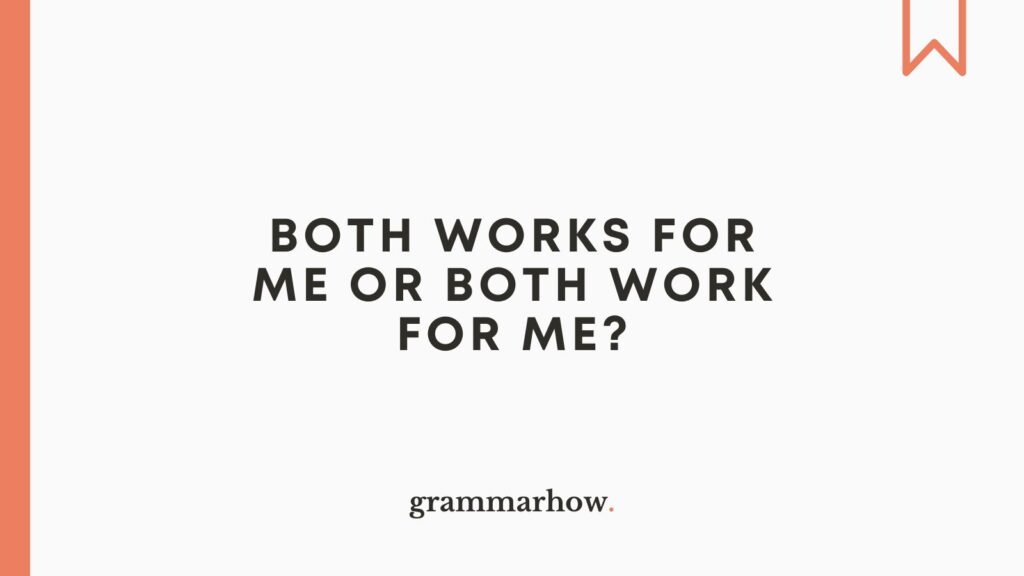Are you trying to figure out whether “work” has an “s” at the end in “both work for me”? Luckily, you’ve come to the right place.
This article will explain everything there is to know before you use “both work for me.”
Both Works for Me or Both Work for Me?
Only “both work for me” is grammatically correct. “Both” is a plural form, so you can follow it with a verb in the third-person plural. “Work” is the correct third-person plural verb. “Both works for me” is acceptable informally, but it is not correct. “Works” is the wrong form grammatically.
Here’s a quick look at the two forms showing you how it works:
- Correct: Okay, so both work for me. Which one would you rather do?
- Incorrect: No, both works for me. I’m happy to stick with whichever you decide.
Keep reading to learn more about the correct form and why it’s the case. That way, you’ll be more confident when using “both work for me” yourself.
Both Works for Me
“Both works for me” is not correct. You should avoid using it when following formal writing rules because “works” is the wrong verb form.
Here’s a quick reminder of the correct form compared to “both works for me:”
- Correct: Both work for me, so I think we can do either one. Let me know what you think.
- Incorrect: So, both works for me. Though, I’m not sure whether they’ll work for Darren.
“Work” must not have an “s” at the end.
“Both” is plural, so the following verb must be in the third-person plural. It’s similar to using other plural forms. For example:
- They work.
- We work.
- People work.
Both Work for Me
“Both work for me” is grammatically correct. After all, “both” is plural, so “work” is the only correct form to use alongside it. You should leave “work” in this form as it is the third-person plural.
Here are some examples to demonstrate it:
- Both work for me. Let me know which one you decide on.
- Clearly, both work for me. I’m happy to do whichever one you think is best.
You might also use “both work for me” when a noun comes between “both” and “work.” The noun should be in the plural form before “work.”
For example:
- Both of those work for me, and I’m happy to help with whatever you need.
- Both times work for me. Is there anything else you need before I go, though?
Conclusion
“Both work for me” is the correct form to use. It’s also correct when you include a noun between “both” and “work.”
You should not use “both works for me.” It uses the wrong verb form, so it makes no sense in your writing.

